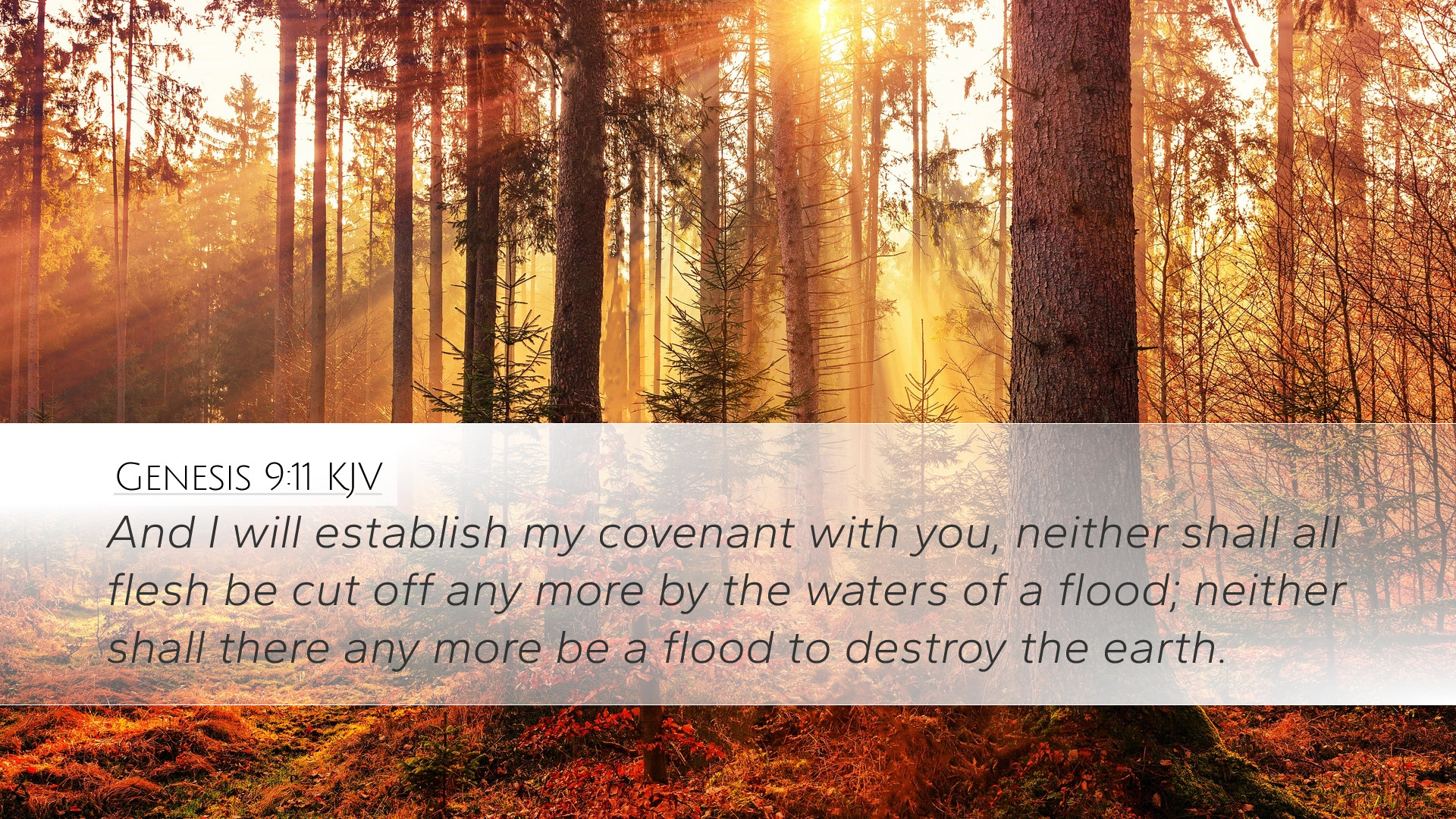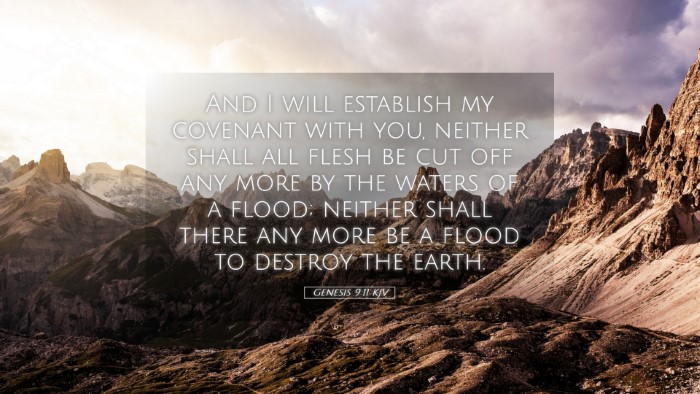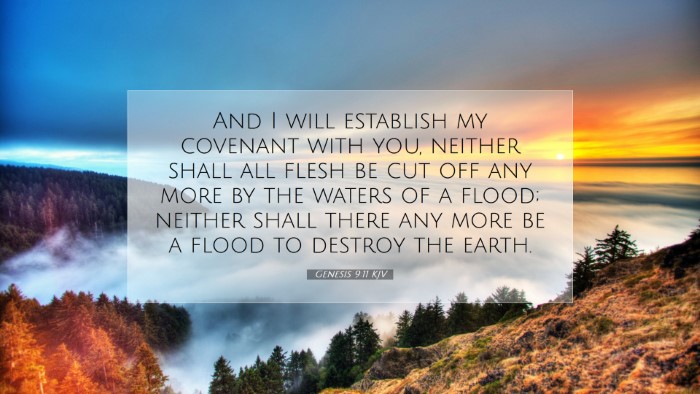Commentary on Genesis 9:11
Bible Verse: "And I establish my covenant with you; neither shall all flesh be cut off any more by the waters of a flood; neither shall there any more be a flood to destroy the earth." (Genesis 9:11, KJV)
Introduction
This verse marks a pivotal moment in biblical history, establishing a covenant between God and humanity following the cataclysmic flood that wiped out nearly all creation. The gravity of this promise not only illustrates God's mercy and faithfulness but also lays the groundwork for theological reflections on God's relationship with humanity.
Theological Significance
The covenant described in Genesis 9:11 is one of the foundational covenants in the Bible. It symbolizes God's commitment to creation and assures humanity of His enduring mercy. Matthew Henry notes that this covenant is universal, extending to all flesh, not just the people of Israel, which showcases God's intention for a broad relationship with all creation.
- Covenant as Assurance: God's promise signifies His intention never to destroy the earth by flood again. This assurance serves not only to alleviate immediate fears but also to provide a framework for understanding God's interactions with humanity throughout history.
- Divine Mercy: The covenant highlights God's mercy following the judgment of the Flood. Albert Barnes points out that this underscores the balance between judgment and grace, where God, despite humanity's failures, chooses to maintain His creation.
- Continuity of Creation: Adam Clarke emphasizes that God's covenant is also a promise of preservation, indicating that He sustains the natural order. It assures humanity that creation will continue to function as intended, which is vital for human civilization.
Contextual Analysis
This verse comes in the aftermath of the Flood, where Noah and his family emerge as the new representatives of humanity. The prior chapters detail the judgment brought upon the world because of wickedness, and the covenant here represents a fresh start.
Matthew Henry elaborates on the importance of this context: "The Flood was a display of God’s justice, while the covenant that follows is a revelation of His grace." God’s promise provides hope for humanity’s future despite its sinful inclination.
Covenantal Implications
In Jewish tradition, the concept of covenant is central. This particular covenant not only speaks to Noah's descendants but extends to the entire creation, indicating that God is committed to maintaining the order of nature and the welfare of all living beings.
Albert Barnes discusses the implications of this promise, stating that it "signifies a new era in God’s dealings with humanity." This moment corresponds to God's desire to reconcile with creation after a significant act of destruction.
Noteworthy Aspects of the Covenant
- Universal Scope: Unlike previous covenants that were more localized (e.g., with Abraham), this promise encompasses all living creatures, indicating God's love for His entire creation.
- Conditionless Nature: This covenant is unconditional; it relies solely on God's integrity rather than human faithfulness. Matthew Henry asserts that this reflects God’s sovereign grace, as He commits Himself regardless of humanity's future actions.
Symbol of the Rainbow
In the subsequent verses, God provides a visible sign of this covenant—the rainbow. This emblem represents peace and divine reminder that the earth will never again face such catastrophic judgment.
Adam Clarke notes the rainbow's significance as a "symbol of divine mercy and grace," serving not just as a reminder to humanity, but also as a recorded promise to God Himself. It is a powerful sign of hope amid turmoil.
Application for Today
This covenant remains relevant for pastors, students, and theologians as it brings forth discussions about God's nature and His interactions with humanity. It encourages an understanding of the divine mercy that persists even in the face of rebellion and sin. The acknowledgment of God’s promised preservation of creation can invoke a sense of responsibility towards environmental stewardship in contemporary society.
Moreover, the unconditionality of God's promise assures believers today of His faithfulness and steadfast love. It invites reflection on how believers are called to respond to God's mercy—by living in faith, promoting peace, and caring for all creation.
Conclusion
Genesis 9:11 is not merely a historical statement; it is a profound theological assertion of God’s faithfulness, mercy, and the relational covenant established between God and all living beings. It emphasizes that despite humanity’s propensity for sin, God's commitment remains steadfast. This rich tapestry of meaning found in this verse invites all readers to renew their understanding of God’s enduring promises and calls them into deeper relationship with Him.


